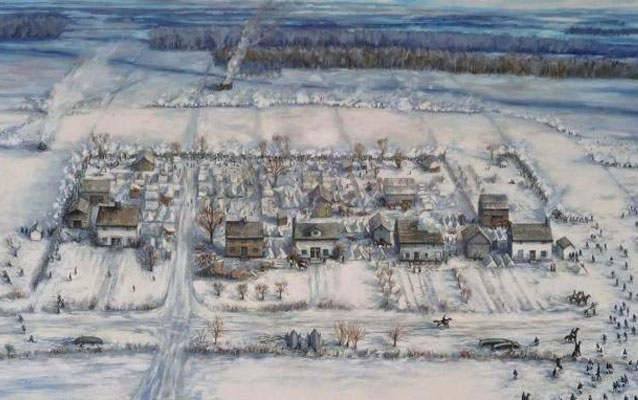Last updated: March 12, 2015
Place
River Raisin National Battlefield Park

NPS
The exclaimation "Remember the Raisin!" rallied Americans to support the war effort after early 1813. The killing of Americans taken prisoner after the Battle of the River Raisin (also known as the Battle of Frenchtown), in southern Michigan, inflamed settlers on the Old Northwest Frontier and fueled early support for the War of 1812 in the west.
Between January 18 and 23, 1813, a series of attacks and counterattacks focused on Frenchtown, a small community at the western end of Lake Erie. Having been captured by British forces and Native allies at the start of the war, Frenchtown was the target of an American army on its way to recapture Detroit and establish control of the Great Lakes.
American General James Winchester, commanding untrained Kentucky volunteers and local French militia, captured the town, only to be displaced a few days later by reinforced British troops and Native warriors. After the Americans retreated, Native allies of the British killed dozens of wounded prisoners. The incident became known as the "River Raisin Massacre" by enraged Americans. The losses suffered at Frenchtown were a significant setback for the American command in the west, and outrage at the treatment of the prisoners was a focal point for continuing the war with greater resolve.
